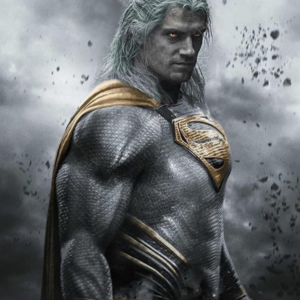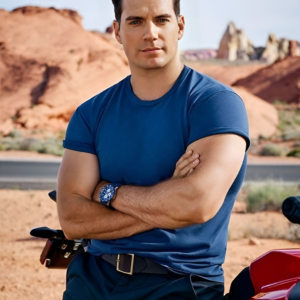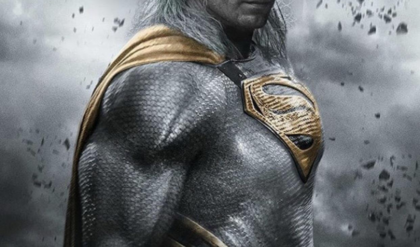Eastwood, known for his rugged roles in Westerns and critically acclaimed directorial efforts, made the announcement at a press conference held at his Carmel-by-the-Sea home. Standing before a crowd of reporters and cameras, he carefully laid out each of his four Oscars on a table, visibly emotional yet resolute.
“For decades, I’ve been part of an industry that I now see as profoundly lost,” Eastwood began. “I can no longer be associated with an institution that prioritizes profit over integrity, fame over substance, and political correctness over genuine storytelling.”
The Academy Awards Eastwood returned include his Best Director Oscars for “Unforgiven” (1992) and “Million Dollar Baby” (2004), as well as Best Picture awards for the same films. His decision comes at a time when Hollywood is facing growing criticism over various issues, including allegations of widespread sexual misconduct, lack of diversity, and accusations of prioritizing ideological conformity over artistic expression.
Eastwood did not mince words in his condemnation. “The Hollywood of today is a shadow of its former self,” he stated. “It’s an industry that silences dissent, embraces superficiality, and rewards those who play by its increasingly narrow and hypocritical rules.”
The veteran filmmaker also criticized the industry’s handling of controversial issues, suggesting that Hollywood’s approach often stifles creativity and genuine dialogue. “In the pursuit of being ‘woke,’ Hollywood has become blind to its own flaws,” Eastwood remarked. “It’s more interested in making statements than making art, more concerned with virtue signaling than virtue itself.”
Eastwood’s bold move has garnered mixed reactions. Some industry insiders have praised his courage and integrity, viewing his actions as a much-needed wake-up call. Others, however, see it as a misguided and overly dramatic gesture that fails to recognize the efforts being made to address Hollywood’s issues.
“Clint has always been a maverick, and this is just another example of his willingness to stand up for what he believes in,” said a close friend and fellow actor, who requested anonymity. “He’s calling out the industry not out of spite, but out of a deep love for what cinema should be.”
Conversely, some critics argue that Eastwood’s denunciation overlooks the progress made in recent years. “Hollywood is far from perfect, but to dismiss the strides towards inclusion and accountability is shortsighted,” said a prominent studio executive. “Change is slow, but it’s happening.”
Despite the controversy, Eastwood remains steadfast in his decision. “Returning these Oscars is a symbolic act,” he explained. “It’s a statement that I can no longer support an industry that has lost its way. I hope it sparks a conversation that leads to real, meaningful change.”
As Hollywood grapples with Eastwood’s powerful rebuke, the conversation about its future continues. The industry is at a crossroads, faced with the challenge of reconciling its storied past with the demands and expectations of a rapidly changing world.
Clint Eastwood’s decision to return his Oscars is not just a critique but a call to action. It’s an invitation for Hollywood to reflect on its values and priorities and to strive towards a future where art and integrity are not mutually exclusive.
Only time will tell if Eastwood’s dramatic gesture will have a lasting impact on the industry he has long been a part of. But one thing is certain: his voice, like his films, will continue to resonate, challenging Hollywood to live up to the ideals it so often portrays on screen.
News
Henry Cavill’s Witcher & Superman Replacement Already Avoided The Mistake That Killed The Original Franchise – S
Henry Cavill already has a replacement for The Witcher and Superman thanks to his role in the Highlander reboot, and this is already avoiding the mistake that killed the original franchise. Henry Cavill is one of the most popular action stars thanks to his roles in movies…
Goodbye DC and Superman, Henry Cavill reveals his favorite role if he joins MCU – S
Henry Cavill has expressed his favorite role if he has the opportunity to collaborate with Marvel Studios. Henry Cavill has officially said goodbye to the role of Superman after the DCEU ends at the end of 2023 to open a…
Kim Kardashian Goes Into Hiding After Freak0ff Video Of Her And Diddy Gets Leaked Ok, so things just got a whole lot messier for Diddy. The world witnessed him in his true form as a video of him putting his hands on Cassie made rounds on the internet. – S
It made a lot of folks hella uncomfortable. But as Diddy’s future started to look grim, he thought of a strategy. What’s worse than Diddy being exposed for his crimes? Fans discovering names of beloved celebrities who knew about…
Chris Brown LEAKS The List Of Major Names INVOLVED in Diddy’s Ab*se! | DIDDY IS DONE! – S
**Diddy’s Troubles: Allegations and Revelations** Sean “Diddy” Combs, the music mogul behind Bad Boy Records, finds himself embroiled in a storm of controversies and allegations that threaten to tarnish his reputation irreparably. The latest revelations, sparked by comments from…
HOT NEWS: The Feds LEAK New EVIDENCE of Jay Z P!MPING Beyonce To Diddy?!? – S
The Feds LEAK New EVIDENCE of Jay Z P!MPING Beyonce To Diddy?!? Amidst the swirling vortex of celebrity gossip and scandal, a bombshell revelation has sent shockwaves rippling through the entertainment industry. The latest development involves none…
Kanye Leaks Footage Of Drake Getting Clapped By Lucian Grainge – S
Kanye Leaks Footage Of Drake Getting Clapped By Lucian Grainge Girl, Kanye is back at exp0sing shady celebs, and y’all know that whenever Drake spills the tea, he ALWAYS comes correct with the tea. He has a track history…
End of content
No more pages to load











